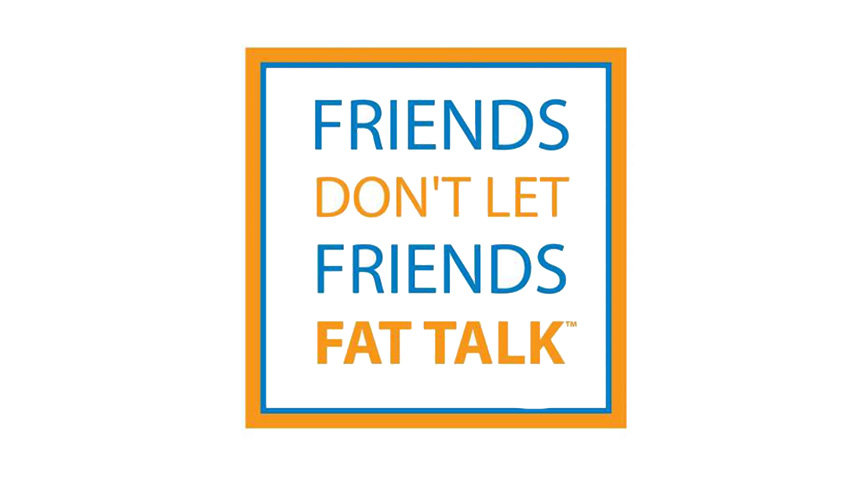Fat talk is a statement made in everyday conversation about yourself or others that contributes to body dissatisfaction and reinforces the thin ideal.
Statements that are considered fat talk don’t necessarily have to be negative. They can seem positive yet also emphasize the need to be thin. Examples of negative body talk are “Do I look fat in this?,” “I need to lose weight” or “I wish I had a six-pack for my abs.” While these statements may seem harmless, it’s difficult to feel good about yourself when you engage in fat talk.
Why is fat talk harmful?
Negative body talk fuels an unhealthy body image and a narrow view of beauty. Research shows that negative body image and eating disorders go hand in hand. In the United States, 10 million women and approximately 1 million men are affected by an eating disorder. Complicating matters are advertisement and magazines that feature unrealistic images that are airbrushed or computer modified to make the person look better.
Moving beyond fat talk
Positive words and thoughts help foster a positive self-image. Reframe the way you see yourself and others to contribute to positive body image.
- Limit negative thoughts when looking at a mirror by focusing on things you like about yourself.
- Say “thank you” when someone gives you a compliment rather than objecting to the compliment.
- Recognize and appreciate traits about yourself and others that have nothing to do with appearance such as strength, intelligence, humor, and generosity.
- Remind those around you who are talking negatively about their bodies that everyone is unique in their beauty.
- Keep in mind that most models in advertisements and magazines are airbrushed. Choose to read media sources that show diversity in shapes and sizes.
Concerned for a friend?
Both men and women struggle with unhealthy body image and eating patterns. Be a source of support for yourself and others. Here are some ways to help:
- Learn about eating disorders. Information is available from Campus Dining, Health Promotion and Wellness, Student Counseling Services, and Student Health Services.
- Know your limits. Avoid getting overly involved by trying to offer therapeutic advice.
- Be honest. Talk openly and honestly about your concerns with the person who is struggling. Be caring, yet firm when discussing body issues.
- Offer encouragement. Support and understanding are keys to restoring health.
- Be a good role model in regard to sensible eating, exercise, and self-acceptance.
- Tell someone you are concerned. Seeking advice from a professional offers your friend the best chance to work through issues and be healthy again. Campus Dining, Health Promotion and Wellness, Student Counseling Services, and Student Health Services are just a few of the campus resources that can help your friend.
What is Fat Talk Free Week?
Fat Talk Free Week is an international, five-day body activism campaign to draw attention to body image issues and the damaging impact of the “thin ideal” on society. Fat Talk Free Week 2013 runs from October 21-25. This annual public awareness effort was born from Tri Delta’s award-winning body image education and eating disorders prevention program, Reflections.

